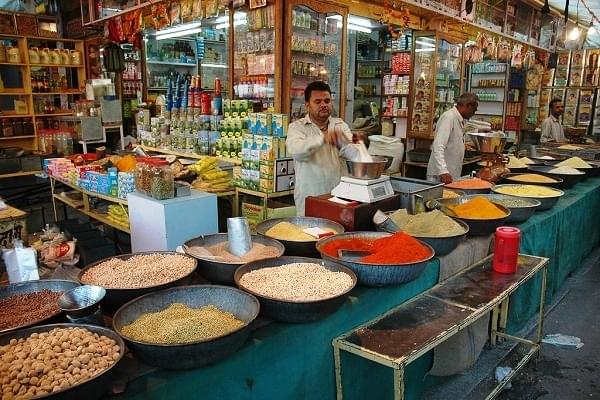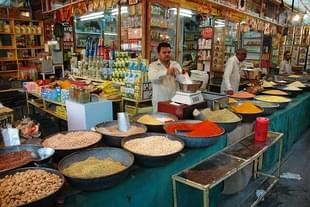Ideas
Indians Are Spending Less On Food; So Why Let Food Inflation Decide Interest Rates?
R Jagannathan
Oct 23, 2020, 10:23 AM | Updated 10:23 AM IST
Save & read from anywhere!
Bookmark stories for easy access on any device or the Swarajya app.


The reduction in the weights assigned to food and beverages in the new Consumer Price Index for Industrial Workers (CPI-IW) is yet another signal that the Monetary Policy Committee’s (MPC’s) inflation mandate needs serious tweaking, to say the least.
The new CPI-IW, with 2016 as base, reduces the weight for food and beverages to 39.17 from 46.2 in the old index (base: 2001), which is indicative of the rising prosperity of the working class. Rising incomes always result in lower spends on basic necessities like food and drink.
If food weights for the working class are falling, surely the 45.86 weight in the combined general consumer price index (CPI) may also be out of date. While rural weights are higher than urban ones in the CPI (54.18 versus 36.29), the combined weight might still be too high given that actual rural spends on food by farmers may be lower in real terms. Some of the food produced would be for self-consumption or payable partly in kind to farm labour.
Given this backdrop, one wonders how the MPC will be interpreting the 7.34 per cent rise in the general CPI for September, when most of it is driven by food inflation (10.68 per cent). If the food part of non-discretionary spends is falling, surely the inflation mandate needs change.
But there is another aspect to this issue too. Food prices in India are not entirely driven by market demand or supply since both support and selling prices (at least for subsidised supplies) are government-determined in key cereals, some pulses and other food items. Moreover, stop-go decisions on imports and exports impact retail prices all the time (onion being the latest to face this reality).
This calls for a change in the inflation mandate whereby only core inflation (minus food and fuel) is targeted by the MPC, with food prices being assigned to the fiscal side as largely the latter’s responsibility. When inflationary expectations spiral and get generalised, it may not make sense to ignore food inflation to reduce overheating in the economy, but the normal weightage assigned to food inflation by the MPC must be sharply lower. It must not substantially impact its interest rate decisions in normal times.
The sectors that are hurting most from interest rates are Covid-impacted manufacturing and services, not to speak of banks themselves. When rates fall, banks also benefit from higher treasury gains, which means their balance-sheets will improve.
Delinking food inflation substantially from the broader inflation mandate of the MPC is sorely needed.
A simple takeout from this: the MPC should cut rates in favour of growth by letting government handle food inflation fiscally. This, of course, needs a dialogue between the Reserve Bank of India and the Finance Ministry, but that is needed anyway. In today’s crisis, a regulator who does not talk to his fiscal boss would be a fool.
Jagannathan is former Editorial Director, Swarajya. He tweets at @TheJaggi.





